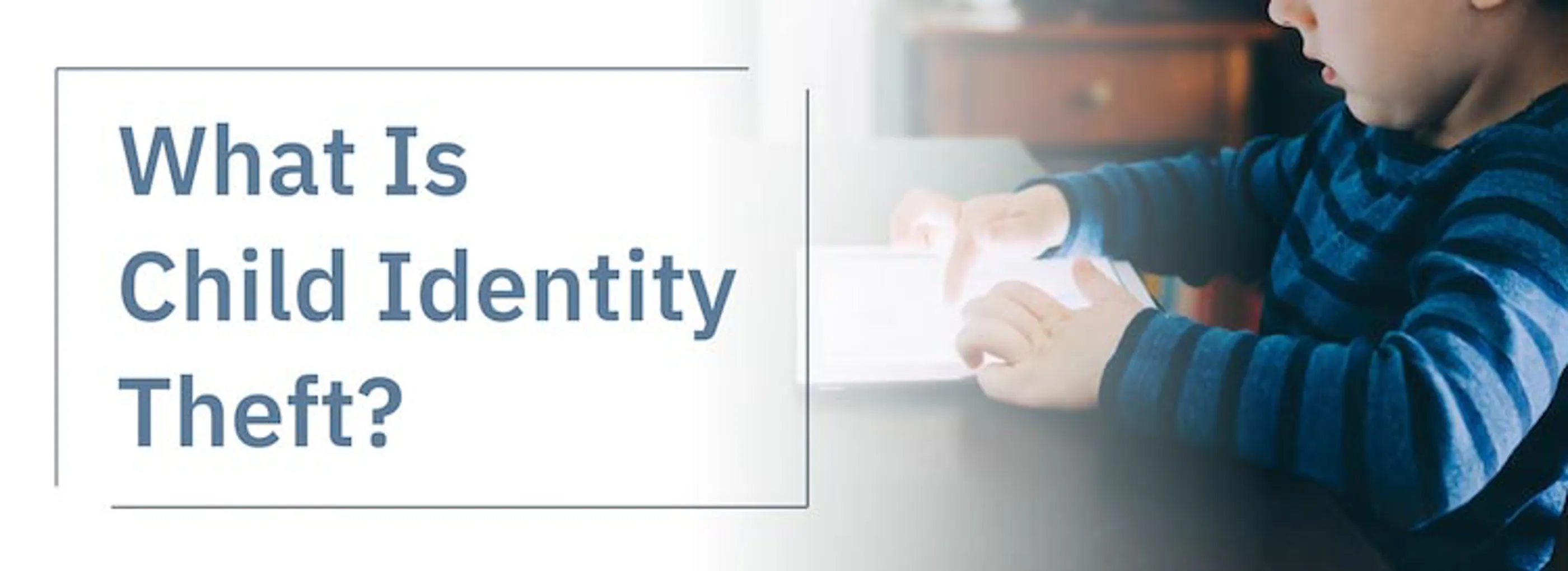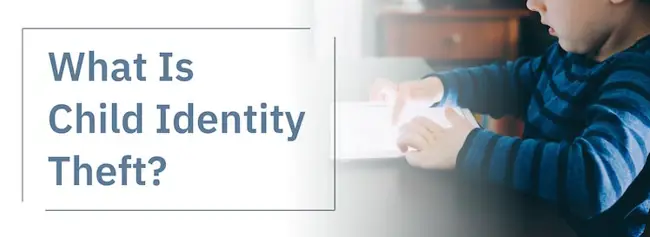Group legal insurance plans are one of the fastest growing employer benefits.

What is Child Identity Theft?
What is Child Identity Theft?
As adults, we take extra precaution when sharing sensitive personal information, such as routing numbers, credit card numbers, and social security numbers. We inquire about who will have access to the information, why it is being collected, and how it will be stored. We wrongly assume that such investigation is not required to protect our children’s personal identifiable information, when in reality, their identities are far more vulnerable to theft.
According to a 2017 report by Javelin Strategy & Research, over 1 million children fell victim to identity and theft and fraud, the majority of which were under the age of seven.
Thieves capitalize on children’s clean records to perform a number of fraudulent activities. They use adolescents’ social security numbers to open bank accounts, assume loans, and apply for benefits, as well as secure rental housing. These shams can go undetected for years, only discovered when your college-bound teen is denied a student loan because of debt he’s been collecting since he was five; due to crooked thieves, a college acceptance is now riddled with the challenges of restoring a stolen identity.
Here are four ways to detect fraud and restore your child’s identity:
Conceal or Reveal?
Just because a school or new doctor’s office asks for your child’s SSN doesn’t mean you have to give it out. Before offering up your child’s information, ask why it is necessary, and if provided, how it will be safeguarded. You can suggest a unique pin or different means of identification too, and opt-out of any public directories at school, church, and the like.
Even those close to you should not be trusted with your child’s information. Javelin Strategy & Research reports that minors are extremely susceptible to familiar fraud, meaning their identity has been compromised by someone they know. Case studies suggest that 60% of child victims have a personal relationship with their offender.
Whenever your child’s social security number is shared, be it electronically or on paper, be sure to store or discard of the documents accordingly. The information may seem safe in your home, but could be compromised via a network hacking or break-in.
When in doubt, follow up
If your elementary-aged son is receiving collection notices for an unpaid utility service, it may be time to investigate. Run a credit report to reveal any abnormal activity or file a formal identity theft report with the Federal Trade Commission.
You can also contact loan providers and management agencies directly to inquire about any suspicious activity.
Order a Child Credit Freeze
Until your son or daughter is old enough to apply for a checking account or take out a loan for their first car, there is no need to allow access to a credit report. A credit freeze often trumps thieves as they are refused extensions of credit when credit history is unavailable.
Credit freezes are a free security tool that has absolutely no impact on your child’s future credit score. You can call any national credit bureau – Equifax, Experian, or Transunion – to enact the freeze and stave off potential perpetrators.
Pursue all possible remedies
Some theft cases are worse than others. Depending on the severity of damage to your child’s identity, you can pursue one or all of the following steps:
- Close accounts opened in their name and report fraudulent charges.
- Report misuse of a Social Security number.
- Contact companies where fraud occurred.
- Place a fraud alert, and if necessary, file a report with either the FTC or your local police department.
- Review and correct your credit report.
For more details, visit IdentityTheft.gov/Steps.
Social media savvy? Teach yourself and your children how to protect your identities on some of today’s most popular social network platforms.





